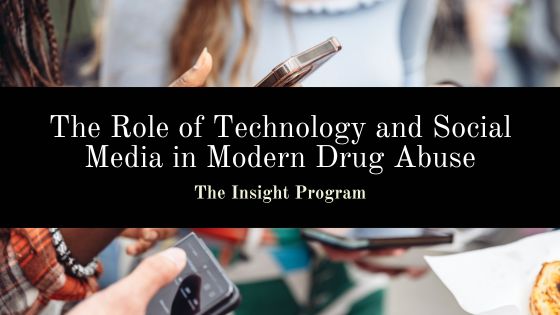The landscape of drug abuse is constantly evolving, with technology and social media playing increasingly significant roles in its modern manifestations. These platforms, while offering numerous benefits, have also created new avenues for substance abuse and addiction. Understanding the role of technology and social media in modern drug abuse is crucial for parents, educators, and policymakers to effectively address this growing issue.
Increased Accessibility and Anonymity
Technology has made it easier than ever to access drugs. Online marketplaces on the dark web allow users to purchase a wide variety of substances anonymously. These platforms often use cryptocurrencies, making transactions difficult to trace. Social media, too, can be a conduit for drug sales. Dealers use encrypted messaging apps and private groups to reach potential buyers, often targeting vulnerable populations, including teenagers.
Influence of Social Media Culture
Social media has a profound influence on youth culture, shaping perceptions and behaviors. Platforms like Instagram, Snapchat, and TikTok are rife with content that glamorizes drug use. Influencers and peers may post about their drug experiences, portraying them as fun and harmless. This normalization can lower the perceived risks of drug use and increase curiosity and experimentation among impressionable viewers.
Peer Pressure and FOMO (Fear of Missing Out)
The fear of missing out, or FOMO, is a powerful driver of behavior, particularly among young people. Social media amplifies this phenomenon by showcasing curated highlights of others’ lives, often including substance use at parties or social gatherings. The desire to fit in and be part of these experiences can lead to peer pressure and an increased likelihood of drug use. This peer pressure is not confined to physical spaces but extends into digital interactions, making it pervasive and relentless.
Mental Health Impact
The constant connectivity and exposure to social media can negatively impact mental health, contributing to anxiety, depression, and low self-esteem. These mental health issues are often linked to substance abuse as individuals may turn to drugs as a coping mechanism. The feedback loop between social media, mental health, and drug use creates a complex challenge for prevention and intervention efforts.
Misleading Information and Misinformation
The internet is a vast repository of information, but not all of it is accurate or reliable. Young people seeking information about drugs may encounter misleading or false information that downplays the risks or promotes unsafe practices. Social media platforms can be breeding grounds for misinformation, with users sharing unverified tips and advice that can lead to dangerous behaviors.
Opportunities for Prevention and Education
Despite these challenges, technology and social media also offer opportunities for prevention and education. Online campaigns, educational videos, and social media influencers who advocate for healthy lifestyles can counteract the negative influences. Schools and organizations can leverage these platforms to disseminate accurate information about the risks of drug use and addiction. Interactive apps and online resources can provide support and guidance for those struggling with substance abuse.
The Role of Parents and Educators
Parents and educators play a critical role in mitigating the impact of technology and social media on drug abuse. Open communication about the risks associated with online interactions and drug use is essential. Monitoring and guiding young people’s internet and social media use can help identify potential issues early on. Encouraging healthy, offline activities and fostering strong self-esteem and decision-making skills are also crucial.
Conclusion
The intersection of technology, social media, and drug abuse presents a complex and evolving challenge. While these platforms can facilitate access to drugs and influence behaviors, they also offer powerful tools for education and prevention. By understanding and addressing the multifaceted role of technology and social media in modern drug abuse, we can better equip young people to navigate these challenges and make informed, healthy choices.

